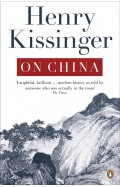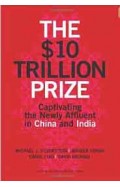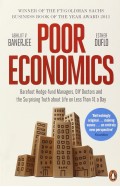Gulf Oil and Gas: Ensuring Economic Security - Paperback
By: ECSSR
-
Rs 1,440.75
- Rs 1,695.00
- 15%
You save Rs 254.25.
Due to constant currency fluctuation, prices are subject to change with or without notice.
In recent years, geopolitical disruptions, tightening oil supply, refining constraints and rising demand have combined to maintain high oil prices, allowing Middle East oil producers to capitalize on the resulting revenue windfall. However, formidable challenges for long-term production loom ahead: Can Gulf oil producers allay the supply security concerns of major consumer nations? How will limitations in crude quality and constraints in refining capacity impact on global energy markets? How can OPEC maintain reasonable oil prices in the face of exhaustible oil supplies and inexhaustible global demand? How will growing non-OPEC production affect OPEC's predominant market position in the future? "Gulf Oil and Gas" assesses the vital energy issues: the globalization of the gas trade, trends in crude quality; cooperation between consumers and producers; links between national and foreign oil companies; future demand for Gulf energy; prospects for augmented Gulf production; sustainability of Saudi Arabia's excess capacity; concerns over oilfield security; imperatives for attracting investment and the need for additional oil refining capacity. For the Gulf producers, ensuring economic security means going beyond petroleum resource management to formulate policies leading to diversified national development and greater economic cohesion while safeguarding the region's strategic position in an integrated world economy.
In recent years, geopolitical disruptions, tightening oil supply, refining constraints and rising demand have combined to maintain high oil prices, allowing Middle East oil producers to capitalize on the resulting revenue windfall. However, formidable challenges for long-term production loom ahead: Can Gulf oil producers allay the supply security concerns of major consumer nations? How will limitations in crude quality and constraints in refining capacity impact on global energy markets? How can OPEC maintain reasonable oil prices in the face of exhaustible oil supplies and inexhaustible global demand? How will growing non-OPEC production affect OPEC's predominant market position in the future? "Gulf Oil and Gas" assesses the vital energy issues: the globalization of the gas trade, trends in crude quality; cooperation between consumers and producers; links between national and foreign oil companies; future demand for Gulf energy; prospects for augmented Gulf production; sustainability of Saudi Arabia's excess capacity; concerns over oilfield security; imperatives for attracting investment and the need for additional oil refining capacity. For the Gulf producers, ensuring economic security means going beyond petroleum resource management to formulate policies leading to diversified national development and greater economic cohesion while safeguarding the region's strategic position in an integrated world economy.
Gulf Oil and Gas: Ensuring Economic Security - Paperback
By: ECSSR
Rs 1,440.75 Rs 1,695.00 Ex Tax :Rs 1,440.75
Zubin Mehta: A Musical Journey (An Authorized Biography)
By: VOID - Bakhtiar K. Dadabhoy
Rs 892.50 Rs 1,050.00 Ex Tax :Rs 892.50
The 10 Trillion Prize Captivating thely Affluent in China and India
By: Michael J. Silverstein
Rs 1,865.75 Rs 2,195.00 Ex Tax :Rs 1,865.75
The 10 Trillion Prize Captivating thely Affluent in China and India
By: Michael J. Silverstein
Rs 1,865.75 Rs 2,195.00 Ex Tax :Rs 1,865.75
Global Dexterity: How to Adapt Your Behavior Across Cultures without Losing Yourself in the Process
By: Andy Molinsky
Rs 1,950.75 Rs 2,295.00 Ex Tax :Rs 1,950.75
Poor Economics: The Surprising Truth about Life on Less Than $1 a Day
By: Abhijit Banerjee
Rs 2,515.50 Rs 2,795.00 Ex Tax :Rs 2,515.50
The Great Degeneration: How Institutions Decay and Economies Die
By: Niall Ferguson
Rs 2,035.75 Rs 2,395.00 Ex Tax :Rs 2,035.75
Like A Virgin: Secrets They Wont Teach You at Business School
By: Richard Branson
Rs 1,440.75 Rs 1,695.00 Ex Tax :Rs 1,440.75
Email Revolution : Unleashing The Power To Connect
By: V. A. Shiva Ayyadurai
Rs 862.50 Rs 1,150.00 Ex Tax :Rs 862.50
Money Mania Booms Panics and Busts from Ancient Rome to the Great Meltdown
By: Bob Swarup
Rs 2,252.50 Rs 2,650.00 Ex Tax :Rs 2,252.50
The 10 Trillion Prize Captivating thely Affluent in China and India
By: Michael J. Silverstein
Rs 1,865.75 Rs 2,195.00 Ex Tax :Rs 1,865.75
No recently viewed books available at the moment.
Zubin Mehta: A Musical Journey (An Authorized Biography)
By: VOID - Bakhtiar K. Dadabhoy
Rs 892.50 Rs 1,050.00 Ex Tax :Rs 892.50
Gulf Oil and Gas: Ensuring Economic Security - Paperback
By: ECSSR
Rs 1,440.75 Rs 1,695.00 Ex Tax :Rs 1,440.75
The 10 Trillion Prize Captivating thely Affluent in China and India
By: Michael J. Silverstein
Rs 1,865.75 Rs 2,195.00 Ex Tax :Rs 1,865.75












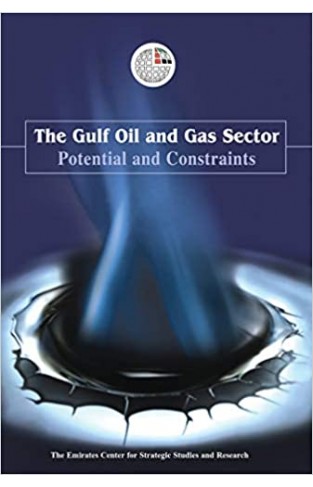
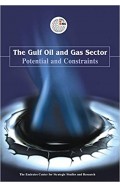
-120x187.jpg?q6)





